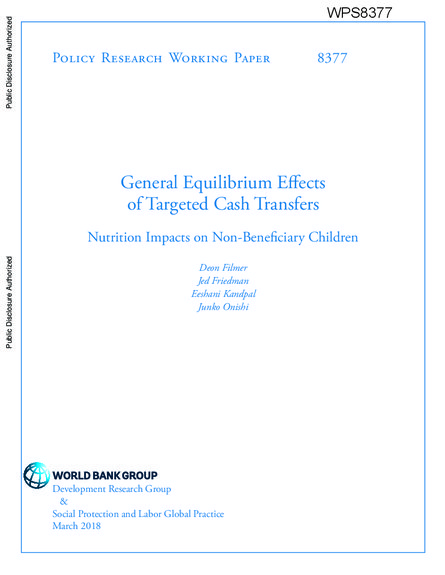
Cash transfer programs may generate significant general equilibrium effects that can detract from the anti-poverty goals of the program. Data from a randomized evaluation of a Philippine cash transfer program targeted to poor households show that a 9 percent increase in village income significantly raised the prices of perishable protein-rich foods while leaving other food prices unaffected. The price changes are largest in areas with the highest program saturation, where the shock to village income is on the order of 15 percent and persists more than 2.5 years after program introduction. Although significantly improving nutrition related outcomes among beneficiary children, the cash transfer worsened those same indicators among non-beneficiary children. The stunting rate of young non-beneficiary children increased by eleven percentage points, with even greater increases in the most saturated areas. Another potentially related spillover arises in local health markets: formal health care utilization by mothers and children also declined among non-beneficiary households. Failing to consider such local general equilibrium effects can overstate the net benefit of targeted cash transfers. In areas where individual targeting of social programs covers the majority of households, offering the program on a universal basis should avoid such negative impacts at little additional cost.